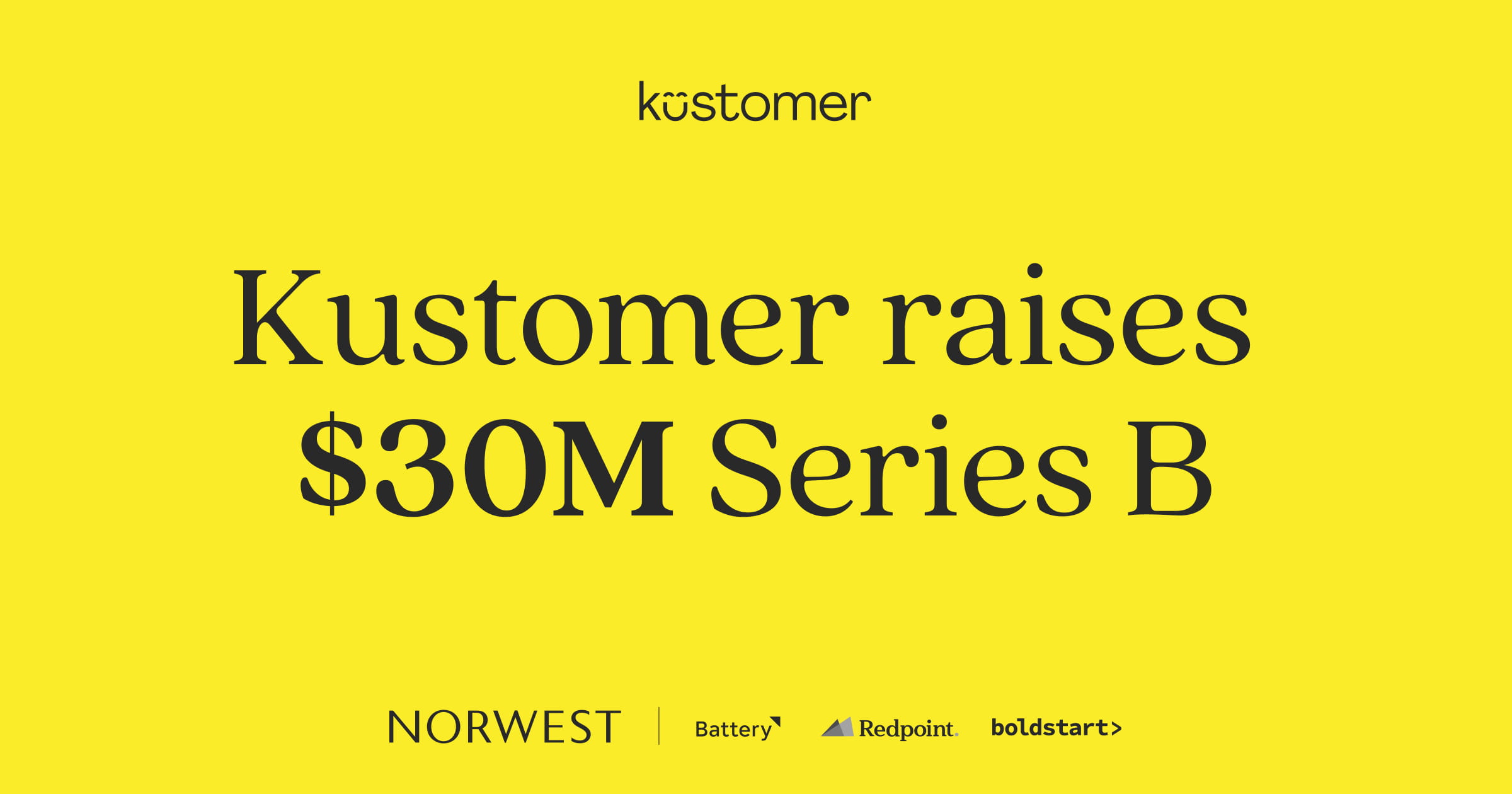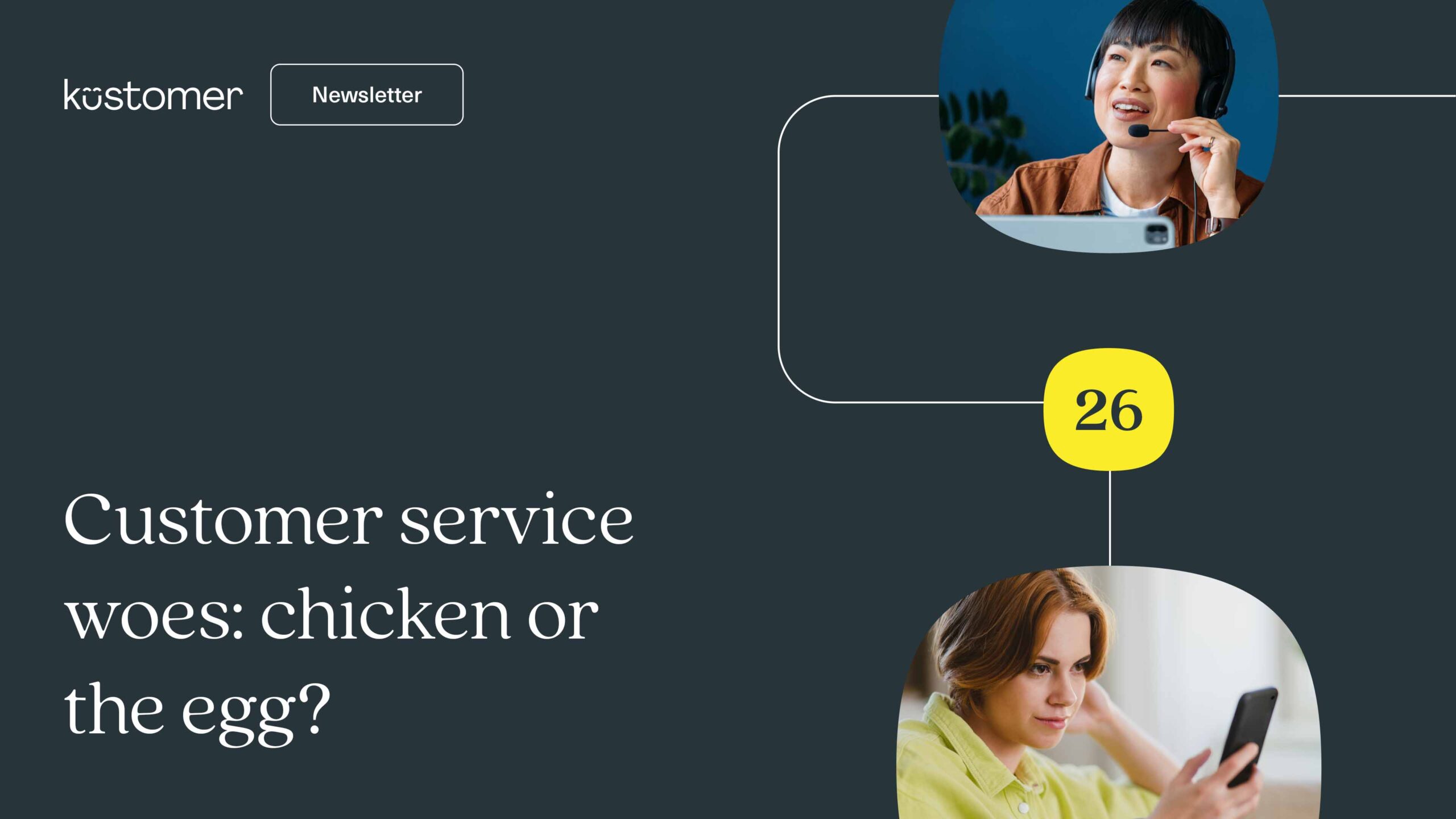CX Insights
Customer service woes: which came first?
This week, it’s clear that customer service feels like a customers vs agents problem:
One article complained that customer service at multiple retail stores on the high street in Britain has fallen as Gen Z employees are lazy, apathetic, and have poor manners. The other shared that a company in Japan is using AI to train employees on how to deal with difficult customers, noting that it’s led to agent labor shortages.
Of course, not every customer is difficult and not every person in a customer service role is unhelpful (or in Gen Z). These are just the outlier examples, but they speak to very real issues.
We don’t need to point fingers and assign blame for how we got here. The more important question: how can we come back from this state of customer service as an industry? Here are some ideas:
- Setting up smooth automated processes to handle easy issues
- Finding ways to make complicated issues less complicated
- Consider company policies from the customer’s perspective
- Train and engage employees, and reward and retain great staff
- Give customer service agents the time, autonomy, and resources to resolve issues - especially complex ones
- Don’t tolerate abuse from customers
It’s a multifaceted problem so it will require work in a lot of different departments, but we can do better.
What do consumers want from personalization?
A new survey reveals 4 in 5 consumers globally are comfortable with personalization using publicly available data, yet preferences vary by generation. While Gen Z embraces personalization, over a quarter of Boomers remain wary of data use for it. American consumers see the benefits of personalization when it comes with better prices and better and easier experiences.
Simple acts of recognition—like baristas personalizing cups—can drive loyalty, but not all brands will see a return from this route and will be better off with a more automated approach.
Leaders should weigh the costs of personalization, leveraging scalable methods to deliver value while fostering customer connection.
Does automation in hospitality miss the point?
In coffee, baristas bridge craft and customer connection. The craft is intrinsically tied in with the customer experience and makes paying a premium for a beverage or meal worth it.
But even for businesses where a little analog experience is part of the appeal, there’s still a drive for efficiency and meeting recalibrated consumer expectations. As automation reshapes cafés and other small businesses, it offers opportunities to streamline operations and free baristas to focus on guest interactions.
However, over-reliance risks eroding the artistry and warmth central to coffee and speciality dining. Customer experience leaders in the food and beverage field should think holistically about tools to enhance, rather than replace, hospitality.
AI Insights
Turning customer support into revenue growth
Can AI Agents help aid customer service, mitigate high contact center turnover, and generate revenue opportunities at the same time? Maybe!
The Telco GenAI Agent Moonshot Catalyst has shown remarkable results for applying AI Agents for telecommunications companies:
- 60% reduction in cost of data preprocessing
- 63% reduction in average handle time
- 50% improvement in first call resolution rates
All of this might mean that with AI Agents, companies can retain contact center workers beyond the typical one-year mark and increase the opportunities to make service calls into a sales opportunity
We’ve said it before and we’ll keep saying it - it’s time to explore how AI Agents can supercharge your customer service as your competitors will be.
This means you can still be ahead of the curve. Explore AI solutions to supercharge your CX and make your plan to implement them in 2025.
AI-powered customer service in healthcare
Carecode, a Brazilian startup focused on bringing AI to customer service in healthcare, has raised $4.3 million in a pre-seed round. The article reports that healthcare companies in Brazil spend half of their revenue on administrative costs and customer service, so this market is uniquely positioned for efficiencies and cost savings that AI can unlock.
AI is set to disrupt customer service even in traditional industries - likely because it can drive much-needed innovation - but don’t underestimate the time and energy involved to get it up and running for your support team.
Is automated customer service meeting expectations?
A recent study of consumers in the United Arab Emirates highlights mixed outcomes: while chatbots shine in speed and efficiency, they often fail with complex queries, frustrating users.
Of course, CX leaders know that chatbots will be replaced by much more advanced AI Agents. However, chatbots have made a first impression on users as to what to expect with automated customer service, and the differences may not be obvious to consumers.
For CX leaders at multinational companies, it’s especially important to understand that customers in different regions may have varying levels of opinion on automated customer service. If that applies in the regions where your customers are, consider the audience’s willingness to use AI as you plan any future rollouts.
See AI Agents in action
Based on this week’s news, it’s clear AI Agents are the next wave of CX innovations you don’t want to miss - is your team ready?
Tune into our on-demand webinar to see Kustomer’s AI Agents in action across voice, chat, email, and SMS, and gain practical insights to optimize your support operations.
We’ll reveal how Kustomer’s unique approach empowers your support team to collaborate seamlessly with AI Agents, ensuring each interaction feels personalized and builds customer loyalty.
Catch the webinar on-demand now!
Golden Nuggets
Honey’s deal-hunting browser extension is accused of ripping off customers and YouTubers
How The 'Amazon Effect' Is Influencing Financial Services' Digital Experience
Ulta Beauty names new CEO




